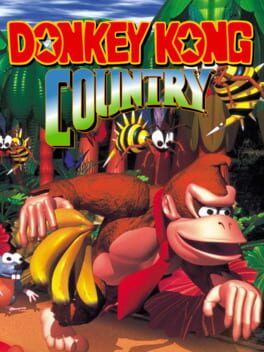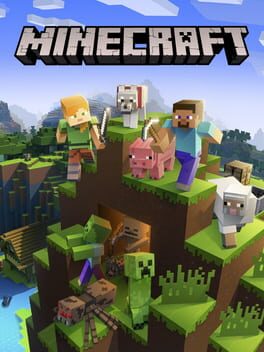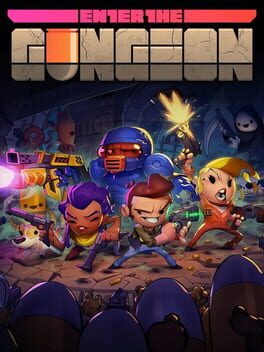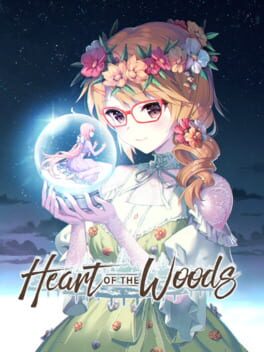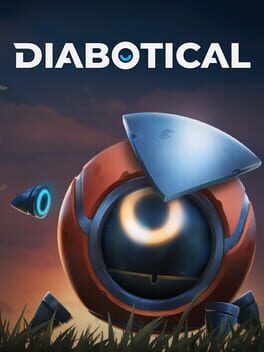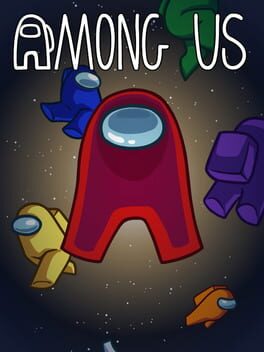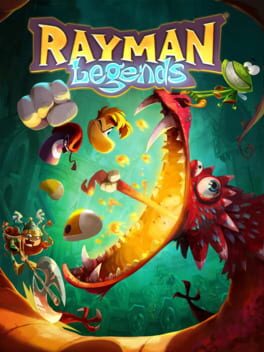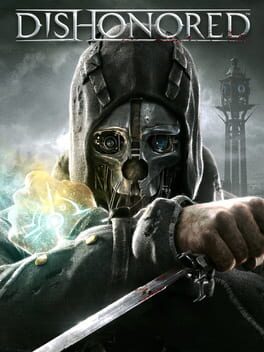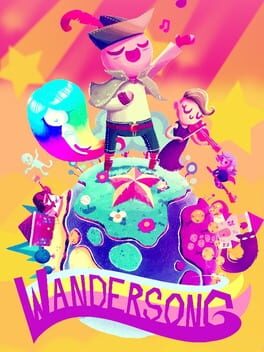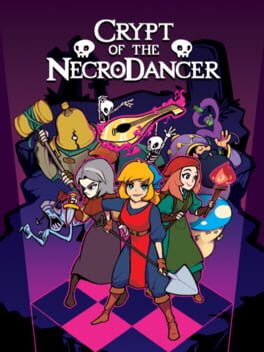AutumnLily
Far from perfect, there are a bunch of things throughout this game that didn't work for me; the intense proliferation of fetch-quests, food instantly healing you whenever you want making a lot of battles about little more than doing a bunch of cooking beforehand, the lack of in-game motivation to explore cooking beyond the same 3 or 4 simple dishes, the negative difficulty curve, forgettable boss battles (all the Ganon-variants having the same aesthetic really works poorly here), moments of overly obtuse reasoning, deeply uncomfortable usage of transphobic tropes, occasional frustrating or unsatisfying challenge design (Lost Woods was particularly rough for this).
All that said, the highs in this game are incredible; this world is one imbued with a very real feeling of magic, many of the views are breathtaking, and I never tired of clambering up yet another mountain to watch as the morning light breaks on the horizon and scout the land from high up for my next goal. I can't remember the last time a game not only created such genuine thrill over exploration but managed to maintain that thrill and excitement for most of its 50 hours. Not only is the world just wonderful to explore, with new secrets around every corner and over every hill, but the game is incredible at providing you a sense of direction in this gigantic world without ever holding your hand and rarely explicitly telling you what to do. That the game's world feels awe-inspiring yet never paralysing in all its options and potential experiences is a real achievement.
All this is to say I am more forgiving towards the game's moments of frustration or disappointment than I would normally be as the positive moments are really something special.
All that said, the highs in this game are incredible; this world is one imbued with a very real feeling of magic, many of the views are breathtaking, and I never tired of clambering up yet another mountain to watch as the morning light breaks on the horizon and scout the land from high up for my next goal. I can't remember the last time a game not only created such genuine thrill over exploration but managed to maintain that thrill and excitement for most of its 50 hours. Not only is the world just wonderful to explore, with new secrets around every corner and over every hill, but the game is incredible at providing you a sense of direction in this gigantic world without ever holding your hand and rarely explicitly telling you what to do. That the game's world feels awe-inspiring yet never paralysing in all its options and potential experiences is a real achievement.
All this is to say I am more forgiving towards the game's moments of frustration or disappointment than I would normally be as the positive moments are really something special.
2012
I have a lot of strong feelings on player (dis)empowerment in videogames. Broadly speaking, I think videogames should default towards aiming to make players feel empowered, and should only imbue feelings of disempowerment and weakness very intentionally and that unintentionally doing so is largely a failing.
Journey very consciously plays around with player (dis)empowerment a lot to great effect. The first time you get to jump and float through the air was really exciting, and the hidden trinkets being extensions for your scarf (that fuels how long you can float through the air for) makes exploring to find them feel very rewarding. The underground sections feel all the more imposing and stifling precisely because it's so hard to find places to recharge your scarf, and encountering the water for the first time was maybe my favourite moment in the game because it contrasted so heavily with the underground (and with most underwater sections in most games); your scarf is fully charged underwater, and you move similarly to how you do when jumping above actual ground, which makes swimming feel closer to flying (generally an inherently empowering game mechanic). The following sections after this push both disempowerment and empowerment to their greatest extremes, and the game is very effective at channelling all of this and the contrast felt here into strong emotional responses from the player.
A bit of me wishes they went even further than this. I found the exact mechanics of how jumping worked pretty frustrating for the first half hour or so, where you had to go near specific points to recharge your scarf in order that it could be ready for when you need it later. This is partially because it felt pretty disempowering over all, I was so often looking at my jumping through the lens of not always being able to do it rather than through the lens of how good it felt to actually perform. It's also awkward because the exact way this is constructed implicitly prompts players to play in ways that aren't fun; you feel this need to preserve your scarf in case there isn't an upcoming charge point near a secret you may need to jump to soon rather than enjoying jumping and floating/flying across the desert. I think I'd have liked to see the scarf recharge whenever you're not actively using it and are under the direct desert sunlight partially because it solves these problems, but also because it emphasises everything that comes after; it would make the underground parts that immediately follow these desert sections feel even more oppressive by contrast when all of a sudden you don't have the harsh sunlight helping you dance across the terrain.
The game is just generally good at provoking emotional responses even beyond how it empowers and disempowers the player. When the ancient beast lurched up for the first time underground it shocked and terrified me, making me feel so weak and small underneath it and these beasts never really stopped feeling so imposing and threatening. The sense of history in the world adds to the game's ability to draw you in, especially in the underground sections, though the presentation of the story and background for all this was a bit too oblique for me to really follow it at all or get much from it sadly.
Journey very consciously plays around with player (dis)empowerment a lot to great effect. The first time you get to jump and float through the air was really exciting, and the hidden trinkets being extensions for your scarf (that fuels how long you can float through the air for) makes exploring to find them feel very rewarding. The underground sections feel all the more imposing and stifling precisely because it's so hard to find places to recharge your scarf, and encountering the water for the first time was maybe my favourite moment in the game because it contrasted so heavily with the underground (and with most underwater sections in most games); your scarf is fully charged underwater, and you move similarly to how you do when jumping above actual ground, which makes swimming feel closer to flying (generally an inherently empowering game mechanic). The following sections after this push both disempowerment and empowerment to their greatest extremes, and the game is very effective at channelling all of this and the contrast felt here into strong emotional responses from the player.
A bit of me wishes they went even further than this. I found the exact mechanics of how jumping worked pretty frustrating for the first half hour or so, where you had to go near specific points to recharge your scarf in order that it could be ready for when you need it later. This is partially because it felt pretty disempowering over all, I was so often looking at my jumping through the lens of not always being able to do it rather than through the lens of how good it felt to actually perform. It's also awkward because the exact way this is constructed implicitly prompts players to play in ways that aren't fun; you feel this need to preserve your scarf in case there isn't an upcoming charge point near a secret you may need to jump to soon rather than enjoying jumping and floating/flying across the desert. I think I'd have liked to see the scarf recharge whenever you're not actively using it and are under the direct desert sunlight partially because it solves these problems, but also because it emphasises everything that comes after; it would make the underground parts that immediately follow these desert sections feel even more oppressive by contrast when all of a sudden you don't have the harsh sunlight helping you dance across the terrain.
The game is just generally good at provoking emotional responses even beyond how it empowers and disempowers the player. When the ancient beast lurched up for the first time underground it shocked and terrified me, making me feel so weak and small underneath it and these beasts never really stopped feeling so imposing and threatening. The sense of history in the world adds to the game's ability to draw you in, especially in the underground sections, though the presentation of the story and background for all this was a bit too oblique for me to really follow it at all or get much from it sadly.
1994
This game has aged pretty horrendously. Graphically it just looks ugly now, especially in contrast with some of the wonderful pixel art that the SNES gave us, and there's a 'zoomed in' effect to this game in order to show off the graphics that means you simply can't see that much of the stage at once both making it far harder to plan your movements and contributing to the game's problem of making it feel like so many of your deaths aren't due to player error, or actual challenges, but instead are cheap deaths that you're only going to avoid by crawling through the levels or memorising where enemies are located. Add to this a bunch of underdeveloped gimmicks and the game...simply just isn't fun.
Also kind of hate how pointless all the bananas and hidden rooms and animal tokens feel. The lives system in a platformer feels woefully outdated by modern design standards, and having all these secrets ultimately only give you extra lives means there just isn't any allure to finding any of this stuff.
Also kind of hate how pointless all the bananas and hidden rooms and animal tokens feel. The lives system in a platformer feels woefully outdated by modern design standards, and having all these secrets ultimately only give you extra lives means there just isn't any allure to finding any of this stuff.
2015
This review contains spoilers
The writing in Undertale is largely excellent. The humour is fluffy, endearing, and consistently funny, and has a habit of aggressively fluctuating between being intentionally predictable and wildly expectation-defying in a manner where each side of that ends up complimenting the other. The characterisations are striking and memorable, but even more than that the game was so effective at making me become attached to these strange monsters; I was genuinely sad having to leave Toriel's side at the end of the first part of the game due to this attachment that had rapidly formed, and on the other side of the equation many of the other main characters felt like friends by the game's end. This is particularly impressive considering you don't actually spend that much time with any individual one due to always travelling alone; so many rpgs will have multiple people travelling with you in your party and yet have none of them feel like friends by the game's end, whereas Undertale is able to take these characters, some of which are initially threatening or even actively scary, and make you fall in love with them wanting to spend so much longer in this world in their company than the game gives you. The majority of the plot is also just very enjoyable, falling into the same space of mixing the dangerous and dark with the cozy and comfortable in a way where both elements are able to compliment each other well; this is going to sound really weird, as they're very different pieces of media, but the feel of the adventure you go on reminded me of the feeling of curling up in bed, late at night, at 9 years old, reading The Hobbit by lamp-light.
And then there's the ending(s), where I found the writing much less unreservedly wonderful, both disappointing and honestly contextually kind of confounding. The moment where Flowey just took over at the end of the Neutral run, shutting down the game and then engaging me an aesthetically clashing fight alongside oodles of meta nonsense...at absolute best soured the experience for me. I am very okay with meta elements in games, and I'm very okay with games doing what this ending tries to accomplish, in fact that's even exciting space that I'd love to see explored more, but here it just felt so out of place. Out of place both in terms of the text, where only a scant few references, most very early on in the game, make you think anything meta could be going to happen, and certainly not to this ever-so-extreme extent, and in terms of tone where again it just feels so dissonant with everything that led to this point. I love seeing this sort of territory explored typically, but here it just felt like it didn't fit and my emotional response was such that I felt robbed of an actual ending. The True Pacifist ending goes some way towards fixing this, with a more satisfying ending in some regards, but it gets bogged down in this mass of plot twists and sudden, unnecessary developments that led to me partially not entirely following what was going on and partially just baffled at why we ended up at this point.
Outside of the writing the battle system feels completely unique, taking all the best parts of bullet-hell and JRPG battle systems, throwing the less appealing elements of these genres to the side (the exhaustion of bullet-hells, the sinking into repetitiveness of JRPG combat), and uses this as a way to both create humour and also allow the world and monsters around you to express themselves. The soundtrack really lives up to all the praise too, at its peak stirring and emphasising the emotional chords the game is so good at hitting (the music upon entering New Home is my favourite moment of this, perfectly bringing out the feeling of nostalgia, this mix of melancholy and fond-memories, this feeling that you're at once both back among those times you came from and cherish and yet can in reality never truly return). The music is so good that even as I found myself frustrated with the mess of details tossed around in the True Pacifist run ending I still found myself getting caught up in the emotions of the final battle regardless.
I love Undertale, but also don't know that I will ever work through these deep frustrations with the two endings I played through, especially so with the Neutral ending. There are moments here I'm going to treasure and carry with me for a while, but these endings clash so badly for me, feel so out of place, that I don't know that I can ever truly return to this game knowing how much they upset me. I hold a lot of this game in high regard, but am also to some extent left on some level feeling mixed, unsure, frustrated.
UPDATE: This world and its characters have grown on me more and more since playing, and I think even the endings I have grown to appreciate more over time. Now just soundly in love with the game with very little in the way of reservation.
And then there's the ending(s), where I found the writing much less unreservedly wonderful, both disappointing and honestly contextually kind of confounding. The moment where Flowey just took over at the end of the Neutral run, shutting down the game and then engaging me an aesthetically clashing fight alongside oodles of meta nonsense...at absolute best soured the experience for me. I am very okay with meta elements in games, and I'm very okay with games doing what this ending tries to accomplish, in fact that's even exciting space that I'd love to see explored more, but here it just felt so out of place. Out of place both in terms of the text, where only a scant few references, most very early on in the game, make you think anything meta could be going to happen, and certainly not to this ever-so-extreme extent, and in terms of tone where again it just feels so dissonant with everything that led to this point. I love seeing this sort of territory explored typically, but here it just felt like it didn't fit and my emotional response was such that I felt robbed of an actual ending. The True Pacifist ending goes some way towards fixing this, with a more satisfying ending in some regards, but it gets bogged down in this mass of plot twists and sudden, unnecessary developments that led to me partially not entirely following what was going on and partially just baffled at why we ended up at this point.
Outside of the writing the battle system feels completely unique, taking all the best parts of bullet-hell and JRPG battle systems, throwing the less appealing elements of these genres to the side (the exhaustion of bullet-hells, the sinking into repetitiveness of JRPG combat), and uses this as a way to both create humour and also allow the world and monsters around you to express themselves. The soundtrack really lives up to all the praise too, at its peak stirring and emphasising the emotional chords the game is so good at hitting (the music upon entering New Home is my favourite moment of this, perfectly bringing out the feeling of nostalgia, this mix of melancholy and fond-memories, this feeling that you're at once both back among those times you came from and cherish and yet can in reality never truly return). The music is so good that even as I found myself frustrated with the mess of details tossed around in the True Pacifist run ending I still found myself getting caught up in the emotions of the final battle regardless.
I love Undertale, but also don't know that I will ever work through these deep frustrations with the two endings I played through, especially so with the Neutral ending. There are moments here I'm going to treasure and carry with me for a while, but these endings clash so badly for me, feel so out of place, that I don't know that I can ever truly return to this game knowing how much they upset me. I hold a lot of this game in high regard, but am also to some extent left on some level feeling mixed, unsure, frustrated.
UPDATE: This world and its characters have grown on me more and more since playing, and I think even the endings I have grown to appreciate more over time. Now just soundly in love with the game with very little in the way of reservation.
2011
I played this several years ago, so it is possible it has improved by then. I found the need to constantly rely on wikis, and that so much stuff isn't taught in-game, deeply frustrating, and that my enjoyment of the game mainly came from getting to share time and creations with my friends rather than from the game being an inherently satisfying experience (it largely isn't).
2016
There's a lot to like here; gameplay is energetic and fun, the game is visually very appealing, and the sheer amount of creativity on show here is overflowing.
That said, various genre-trappings dragged down the experience for me. I had to have a wiki open on my phone at all times to even know what half the items do (please just include this information in-game in roguelites...). I also found the experience largely unsatisfying; a lot of runs feel hopeless because of bad rng in any number of ways (though most notably with the items you're given) making you feel like you wasted your time, whereas on the opposite side of the equation the runs I was having success it was easy to dismiss as me just getting good rng and powerful items rather than due to my play.
That said, various genre-trappings dragged down the experience for me. I had to have a wiki open on my phone at all times to even know what half the items do (please just include this information in-game in roguelites...). I also found the experience largely unsatisfying; a lot of runs feel hopeless because of bad rng in any number of ways (though most notably with the items you're given) making you feel like you wasted your time, whereas on the opposite side of the equation the runs I was having success it was easy to dismiss as me just getting good rng and powerful items rather than due to my play.
2019
This review contains spoilers
One of the most impressive and enjoyable parts of Heart of the Woods is, especially in its opening couple acts, how it manages to gently push your suspension of disbelief further and further in its introduction of its fantastical elements. At the very beginning you find yourself asking, just like Maddie does, whether the magical elements could really be real, and Morgan is believably presented as unreliable in what she's saying. Yet, over the course of these opening hours, the game submerses you into these magical elements step by step so that each level deeper you go just adds to all the mystery and intrigue and excitement; the big reveal of the forest spirit, looming outside the church, is particularly breathtaking. Yet one of my favourite moments is when the game swapped point-of-view to Morgan for the first time, right before the introduction of Evelyn's ability to influence and control people's actions; the timing on this is so perfect for suspending disbelief as up until now Morgan has been presented as unreliable through the eyes of Maddie and Tara, and we need to see things through her own eyes to know that we can actually completely believe what she's about to say about her mother. A moment earlier and the mystery wouldn't have been so enjoyable, a moment later and we'd struggle to get on board with the notion that Evelyn is capable of such things.
I do think there are some elements of the story-telling that work less well, in particular I think this game is generally worse at resolving problems than developing them with a handful of situations that were resolved in what felt like deus-ex-machina-esque means that, whilst they later might make sense in context of the world-building, weren't hugely narratively satisfying at the time. I like the direction these moments take the story, and am somewhat forgiving towards them because of that, but wish they could have been brought to me in a more satisfying manner considering quite how good the game is at initially developing and submersing us into this world. On a different note, Evelyn forcing Morgan to burn down the main tree at the heart of the forest felt like an incredibly sudden development, introducing a bunch of different world-building elements all at once, and I really felt like it would have benefited from having more in the way of direct build-up. I'd also say the sense of time in the visual novel is very strange, with me always being caught by surprise to find out that a few days had passed here, only a couple days there, I was left with a very poor sense of how long anything was taking, where in the month I was, or why there were periods of sudden inaction (this gets particularly awkward after Maddie disappears, when the story has to dedicate a lot of in-world-days to the development of Maddie and Abby's relationship, and Maddie's understanding and exploration of the forest, and it feels like the story finds it hard at points to find stuff for Morgan and Tara to do other than hang out with one another and be scared of Evelyn in the time being most of which is enjoyable but it's really hard to shake the feeling that Maddie has experienced a lot more days than Tara has in this time period).
As far as the central relationships go, I have complicated feelings on Maddie and Abigail's relationship. I loved a lot of their interactions with each other that existed outside of their relationship; those initial meetings in the forest, Maddie bringing the books so that Abby could show her name and listen to the children's story, Abby sharing her favourite parts of the forest with Maddie after Maddie joined her as a spirit. These moments are so endearing, and it made me happy that Abby finally had company after so long alone. It felt like an almost sisterly bond was forming between them, Maddie becoming protective and caring towards Abby, and that's a part of why it felt kind of weird to me when the story pushed things between them in a romantic direction later on? Abby is rendered in a much more childish way in a bunch of different regards and this makes it so hard for me not to see these early interactions as those between a big and little sister. I think, on top of this, it's hard for me to see things between them as that romantic even outside of that aspect? Part of this is that I felt like the visual novel didn't confront how the trauma they'd both experienced might impact a relationship between them nearly as well as it did with regards to Morgan's trauma and the impact of that on her feelings towards Tara, and a part of this is that being stranded alone with someone, perhaps forever, floating through the forest with them and knowing you may never see another human again and only then seeing them as a potential romantic partner strikes me as more sad than romantic. Like they went from this sisterly affection to being partners potentially more out of loneliness than anything? I know that's not what the story is going for, but the sense that it could be read that way added to my inability to get on-board with their relationship as much as I'd like.
Conversely, I loved Tara and Morgan's relationship. The development from their early interactions up to them being girlfriends by the end of the visual novel, and everything that came in-between, felt incredibly organic, their interactions with each other were consistently a delight, and it felt like their relationship was handled in a really mature way respecting the challenges they're both facing and their attempts to figure out what they actually want in a hard time in their lives. Seeing them gradually grow closer, and open up more and more, and communicate so well with one another throughout this process, was a real joy. Tara and Maddie's friendship, and Morgan and Abigail's discovery of their sisterhood, are both engaging and really add to the story in different ways too, and the sense of these four people becoming a chosen family towards the end was really enjoyable and felt earnt.
I do think there are some elements of the story-telling that work less well, in particular I think this game is generally worse at resolving problems than developing them with a handful of situations that were resolved in what felt like deus-ex-machina-esque means that, whilst they later might make sense in context of the world-building, weren't hugely narratively satisfying at the time. I like the direction these moments take the story, and am somewhat forgiving towards them because of that, but wish they could have been brought to me in a more satisfying manner considering quite how good the game is at initially developing and submersing us into this world. On a different note, Evelyn forcing Morgan to burn down the main tree at the heart of the forest felt like an incredibly sudden development, introducing a bunch of different world-building elements all at once, and I really felt like it would have benefited from having more in the way of direct build-up. I'd also say the sense of time in the visual novel is very strange, with me always being caught by surprise to find out that a few days had passed here, only a couple days there, I was left with a very poor sense of how long anything was taking, where in the month I was, or why there were periods of sudden inaction (this gets particularly awkward after Maddie disappears, when the story has to dedicate a lot of in-world-days to the development of Maddie and Abby's relationship, and Maddie's understanding and exploration of the forest, and it feels like the story finds it hard at points to find stuff for Morgan and Tara to do other than hang out with one another and be scared of Evelyn in the time being most of which is enjoyable but it's really hard to shake the feeling that Maddie has experienced a lot more days than Tara has in this time period).
As far as the central relationships go, I have complicated feelings on Maddie and Abigail's relationship. I loved a lot of their interactions with each other that existed outside of their relationship; those initial meetings in the forest, Maddie bringing the books so that Abby could show her name and listen to the children's story, Abby sharing her favourite parts of the forest with Maddie after Maddie joined her as a spirit. These moments are so endearing, and it made me happy that Abby finally had company after so long alone. It felt like an almost sisterly bond was forming between them, Maddie becoming protective and caring towards Abby, and that's a part of why it felt kind of weird to me when the story pushed things between them in a romantic direction later on? Abby is rendered in a much more childish way in a bunch of different regards and this makes it so hard for me not to see these early interactions as those between a big and little sister. I think, on top of this, it's hard for me to see things between them as that romantic even outside of that aspect? Part of this is that I felt like the visual novel didn't confront how the trauma they'd both experienced might impact a relationship between them nearly as well as it did with regards to Morgan's trauma and the impact of that on her feelings towards Tara, and a part of this is that being stranded alone with someone, perhaps forever, floating through the forest with them and knowing you may never see another human again and only then seeing them as a potential romantic partner strikes me as more sad than romantic. Like they went from this sisterly affection to being partners potentially more out of loneliness than anything? I know that's not what the story is going for, but the sense that it could be read that way added to my inability to get on-board with their relationship as much as I'd like.
Conversely, I loved Tara and Morgan's relationship. The development from their early interactions up to them being girlfriends by the end of the visual novel, and everything that came in-between, felt incredibly organic, their interactions with each other were consistently a delight, and it felt like their relationship was handled in a really mature way respecting the challenges they're both facing and their attempts to figure out what they actually want in a hard time in their lives. Seeing them gradually grow closer, and open up more and more, and communicate so well with one another throughout this process, was a real joy. Tara and Maddie's friendship, and Morgan and Abigail's discovery of their sisterhood, are both engaging and really add to the story in different ways too, and the sense of these four people becoming a chosen family towards the end was really enjoyable and felt earnt.
2020
I really hate all this mastery pass, and daily challenge stuff and wish games would stop trying to manufacture addiction and take advantage of FOMO.
Even outside of that, the game is...fine? Arena shooters were a lot more fun when I was young and feel a bit shallow to me now I think, and when I tried the game none of the arenas felt like an appropriate size for 1v1 play which is sad, but it was a solid enough time running around with friends pew-pewing stuff.
Even outside of that, the game is...fine? Arena shooters were a lot more fun when I was young and feel a bit shallow to me now I think, and when I tried the game none of the arenas felt like an appropriate size for 1v1 play which is sad, but it was a solid enough time running around with friends pew-pewing stuff.
2018
Pretty effective as social deduction game, a horror game, and just some silly fun to mess around with with friends. As someone who dislikes Werewolf this gets a lot of things right that that game fails at.
On a logistical level I do find it a bit frustrating how hard it is to get a 10 person game together with people you know, which is awkward as the game is noticeably worse once you have less than 9.
On a logistical level I do find it a bit frustrating how hard it is to get a 10 person game together with people you know, which is awkward as the game is noticeably worse once you have less than 9.
2013
The core Legends content is quite enjoyable. Outside of the music levels, which are close to platforming perfection, there's nothing particularly memorable here but it all trucks along quite enjoyably, and has both a lot of neat ideas and a good sense of flow to it. I'd probably give like a 7.5/10 or something to this part of the game if it existed in a vacuum.
The Murphy content and Origins content is just...so much worse though. The Origins content in particular is just...subtly more frustrating and less fun in every conceivable way than the core Legends content? The Origins bosses feel particularly egregiously designed, and the flying sections are just dull.
It's weird to think that if you stripped away a bunch of content from this game I would actually just think much more positively of it.
The Murphy content and Origins content is just...so much worse though. The Origins content in particular is just...subtly more frustrating and less fun in every conceivable way than the core Legends content? The Origins bosses feel particularly egregiously designed, and the flying sections are just dull.
It's weird to think that if you stripped away a bunch of content from this game I would actually just think much more positively of it.
2018
I've sunk around 100 hours into Hades. Unsurprisingly I think the game has a lot going for it, the core gameplay is very satisfying, the game gives just enough variety in the experiences it provides whilst having enough consistency to it that doing well is much more about mastering its mechanics than rolling the perfect mix of boons. Of particular note I love the player agency offered in the boons system giving you a lot of choice over the build that will come together this run, and the heat gauge which lets you up the difficulty whilst crafting an experience you'll actually still enjoy.
Beyond that the production quality is incredible, particular standouts being the music which is exciting and enjoyable but able to withstand many hours of repeated listening, and the character designs that are (almost) all just extremely evocative and endearing, each coming with ludicrous amounts of unique dialogue attached.
Beyond all this, beyond all the ways the game interweaves the lore of real mythology into its world, there's just something so conceptually compelling going on here too; the core gameplay loop and the reasoning behind it just makes so much sense, like of course a tale of someone breaking free from the underworld would be a roguelite, of course his inability to survive on the surface sets up perfectly for repeated gameplay loops even after you've "beaten" the game for the first time. It all just works.
That said, I've mellowed a lot on Hades since I put it down a few months ago (and returned to update this review). I still think it's a great game with a lot going for it, but I wish I felt like its true ending respected the player's time a bit more; it takes somewhere in the realm of 80 hours to get to it, but my best experiences with the game were all in my opening 20 or 30 hours of playing and I never really found myself recapturing that initial excitement. It doesn't help that once the heat level is pushed high enough the game stops really becoming fun, all its designs starting to crumble under the weight of however many different modifiers layered on top of one another, some mutated form of its former glory. As much as I enjoyed much of my time with Hades, and as much as I respect a lot of what it is doing, I'm unsure I will ever be returning to it.
Beyond that the production quality is incredible, particular standouts being the music which is exciting and enjoyable but able to withstand many hours of repeated listening, and the character designs that are (almost) all just extremely evocative and endearing, each coming with ludicrous amounts of unique dialogue attached.
Beyond all this, beyond all the ways the game interweaves the lore of real mythology into its world, there's just something so conceptually compelling going on here too; the core gameplay loop and the reasoning behind it just makes so much sense, like of course a tale of someone breaking free from the underworld would be a roguelite, of course his inability to survive on the surface sets up perfectly for repeated gameplay loops even after you've "beaten" the game for the first time. It all just works.
That said, I've mellowed a lot on Hades since I put it down a few months ago (and returned to update this review). I still think it's a great game with a lot going for it, but I wish I felt like its true ending respected the player's time a bit more; it takes somewhere in the realm of 80 hours to get to it, but my best experiences with the game were all in my opening 20 or 30 hours of playing and I never really found myself recapturing that initial excitement. It doesn't help that once the heat level is pushed high enough the game stops really becoming fun, all its designs starting to crumble under the weight of however many different modifiers layered on top of one another, some mutated form of its former glory. As much as I enjoyed much of my time with Hades, and as much as I respect a lot of what it is doing, I'm unsure I will ever be returning to it.
2012
Abandoned this about 7 hours in, towards the end of the first proper mission.
I deeply disliked the effect the morality system has on the game. The game tells you from very early on that you have to avoid killing people in order to get a better ending. Upon learning this, and wanting a good ending, half the items and skills in the game became completely irrelevant if they were intended to kill enemies. Meanwhile the game turned into a mad flurry of saving and reloading (which I find very not-fun in games) because if an enemy ever saw you your inability to kill them meant all you'd be able to do is run away anyways, so if you don't save every time you knock someone unconscious and load whenever you're spotted the game takes forever. The condition attached to the good ending is also just very wishy-washy in a way that stressed me out too; how many enemies can I get away with killing?, am I going to be punished for humans dying for reasons beyond my control (apparently, yes, which was very frustrating)?, am I allowed to kill guard dogs without it hurting my good-ending chances (apparently yes, but I'd really like this to be stated in-game as it's just not intuitive)? Remove the morality system, and make killing people or being a stealthy ghost feel more like a play-style choice rather than something I'm being judged on with rewards being attached to one of the two options, and I'd instantly be much more on-board with the game.
Somewhat relatedly, I found playing the game a very stressful experience. When you're trying to play stealthily, such that you won't let yourself kill or attack anyone in an attempt to get the good-ending, you're super vulnerable. If an enemy sees you all you can do is run away and hide (as they take chase). Mechanically playing with this approach already starts to feel like its bordering on being a horror-game (weak, vulnerable protagonist tries to avoid relentless, essentially-immortal enemies whilst trying to reach the thing that will stop them attacking you), but these vibes are emphasised many times over by the oppressive atmosphere that the game's plague-ridden flavour conjures up. I think either the flavour or the mechanics on their own would have been fine for me, but combined these things led to me just being constantly stressed, on-edge and miserable.
A bunch of other stuff bothered me beyond this; it's very unclear what the range of sight on enemies actually is, attempting to knock enemies unconscious from behind just wouldn't work some amount of the time, I personally really dislike that the game requires I kill rats. Probably the biggest point in the game's favour, from the small portion I played, is that the two powers I unlocked (blink-teleporting and night-sight-that-lets-you-see-lifeforms-through-walls) are compelling and pleasing to use. The worlds I was exploring also seemed to have an impressive level of depth to them too, enough so that I'm a bit sad that not enjoying the way the game encourages me to engage with it mechanically prevented me from exploring it further.
I deeply disliked the effect the morality system has on the game. The game tells you from very early on that you have to avoid killing people in order to get a better ending. Upon learning this, and wanting a good ending, half the items and skills in the game became completely irrelevant if they were intended to kill enemies. Meanwhile the game turned into a mad flurry of saving and reloading (which I find very not-fun in games) because if an enemy ever saw you your inability to kill them meant all you'd be able to do is run away anyways, so if you don't save every time you knock someone unconscious and load whenever you're spotted the game takes forever. The condition attached to the good ending is also just very wishy-washy in a way that stressed me out too; how many enemies can I get away with killing?, am I going to be punished for humans dying for reasons beyond my control (apparently, yes, which was very frustrating)?, am I allowed to kill guard dogs without it hurting my good-ending chances (apparently yes, but I'd really like this to be stated in-game as it's just not intuitive)? Remove the morality system, and make killing people or being a stealthy ghost feel more like a play-style choice rather than something I'm being judged on with rewards being attached to one of the two options, and I'd instantly be much more on-board with the game.
Somewhat relatedly, I found playing the game a very stressful experience. When you're trying to play stealthily, such that you won't let yourself kill or attack anyone in an attempt to get the good-ending, you're super vulnerable. If an enemy sees you all you can do is run away and hide (as they take chase). Mechanically playing with this approach already starts to feel like its bordering on being a horror-game (weak, vulnerable protagonist tries to avoid relentless, essentially-immortal enemies whilst trying to reach the thing that will stop them attacking you), but these vibes are emphasised many times over by the oppressive atmosphere that the game's plague-ridden flavour conjures up. I think either the flavour or the mechanics on their own would have been fine for me, but combined these things led to me just being constantly stressed, on-edge and miserable.
A bunch of other stuff bothered me beyond this; it's very unclear what the range of sight on enemies actually is, attempting to knock enemies unconscious from behind just wouldn't work some amount of the time, I personally really dislike that the game requires I kill rats. Probably the biggest point in the game's favour, from the small portion I played, is that the two powers I unlocked (blink-teleporting and night-sight-that-lets-you-see-lifeforms-through-walls) are compelling and pleasing to use. The worlds I was exploring also seemed to have an impressive level of depth to them too, enough so that I'm a bit sad that not enjoying the way the game encourages me to engage with it mechanically prevented me from exploring it further.
2017
I've quickly developed an intense love for and fascination with this game. Probably the most remarkable thing about it for me is how the world and story can both feel really fleshed out, immersive and engaging, and then some new detail will emerge that shakes up the very foundation of all of this in some big way and yet this space you're engaging with becomes more convincing as a result, not less. It's amazing to me how the game manages to keep redefining your relationship to it in this manner, and yet the effect was always such as to draw me in further rather than push me away.
Somehow for me this process continued even after the game had concluded, with the side materials (https://theark.wiki/w/I_just_got_Ending_E) redefining my relationship with aspects of the game too. The word 'journey' is thrown around a lot, but my experience with this game was quite literally an emotional journey, one that even brought me to tears at points, a journey that continues even after the game has reached its end.
As well as being incredibly well designed from a narrative perspective, the philosophical ideas the game tackles are fascinating, and the way in which the game's structure is built with these in mind is something that is honestly kind of remarkable. My first time completing the game (by which I mean, getting to ending E) was, in this sense too, a journey, but there's also this feeling that there is so much to be unpacked here, and so much that only grows in impact once given full context, that I can see myself continuing to think, feel and explore new emotions, thoughts and ideas on repeat playthroughs. Despite tackling heavy, challenging ideas though, the game is good at managing to not be too heavy except when it needs to be; it has a delightful sense of humour, and is very willing to be silly at the right moments. I can't even begin to imagine the balancing act involved in making all of this work at once.
I have a dear love for these characters, with all their human imperfections and struggles, their hopes and dreams and fears and losses, and the world you explore with them is wonderfully realised. This is both in terms of the detail with which it evokes this dystopia, and also on a technical level of how beautiful these environments are and how well the music compliments them, helping evoke the emotions caught within these locations.
I don't think the game is wholly perfect by any means, though the imperfections rarely annoyed me for any great length of time. The side quests lean a bit too heavily into fairly simple fetch quests, and a handful of the side quests are just frustrating; that said the process of completing side quests feels rewarding with many of them meaningfully contributing either to world-building or the game's philosophical concerns. The base combat can get a bit repetitive after the 20 hour mark or so, and you can easily find yourself over-levelled for the fights you're engaging in; that said there's a gracefulness to the movement in the game that makes the combat generally satisfying, and the game is keen to dip into different genres and styles to try and mix things up and present different experiences.
I could probably list a few more minor complaints like this but it always feels like there's some twist that makes it actually fine, and like ultimately it just doesn't matter because everything else the game is doing in evoking this world, telling this story, and calling forth these emotions, is just so good. I can't remember the last time a game made me care this much, and feel this much.
Somehow for me this process continued even after the game had concluded, with the side materials (https://theark.wiki/w/I_just_got_Ending_E) redefining my relationship with aspects of the game too. The word 'journey' is thrown around a lot, but my experience with this game was quite literally an emotional journey, one that even brought me to tears at points, a journey that continues even after the game has reached its end.
As well as being incredibly well designed from a narrative perspective, the philosophical ideas the game tackles are fascinating, and the way in which the game's structure is built with these in mind is something that is honestly kind of remarkable. My first time completing the game (by which I mean, getting to ending E) was, in this sense too, a journey, but there's also this feeling that there is so much to be unpacked here, and so much that only grows in impact once given full context, that I can see myself continuing to think, feel and explore new emotions, thoughts and ideas on repeat playthroughs. Despite tackling heavy, challenging ideas though, the game is good at managing to not be too heavy except when it needs to be; it has a delightful sense of humour, and is very willing to be silly at the right moments. I can't even begin to imagine the balancing act involved in making all of this work at once.
I have a dear love for these characters, with all their human imperfections and struggles, their hopes and dreams and fears and losses, and the world you explore with them is wonderfully realised. This is both in terms of the detail with which it evokes this dystopia, and also on a technical level of how beautiful these environments are and how well the music compliments them, helping evoke the emotions caught within these locations.
I don't think the game is wholly perfect by any means, though the imperfections rarely annoyed me for any great length of time. The side quests lean a bit too heavily into fairly simple fetch quests, and a handful of the side quests are just frustrating; that said the process of completing side quests feels rewarding with many of them meaningfully contributing either to world-building or the game's philosophical concerns. The base combat can get a bit repetitive after the 20 hour mark or so, and you can easily find yourself over-levelled for the fights you're engaging in; that said there's a gracefulness to the movement in the game that makes the combat generally satisfying, and the game is keen to dip into different genres and styles to try and mix things up and present different experiences.
I could probably list a few more minor complaints like this but it always feels like there's some twist that makes it actually fine, and like ultimately it just doesn't matter because everything else the game is doing in evoking this world, telling this story, and calling forth these emotions, is just so good. I can't remember the last time a game made me care this much, and feel this much.
2018
Bounced off this pretty hard, abandoning it as Act 4 was about to begin. The biggest problem is the rpg sections take up a huge portion of the game-time despite being largely insipid. I'm given no reason to care about this quest beyond saving the world being a generically good thing to do, and no reason to care about these characters who are at best shallow and one-note (he's the happy one, she's the grumpy one, etc) and at worst have a habit of all blending together and sounding the same. I spent the majority of the rpg sections just bored.
The platforming and puzzle-solving sections are largely fine but rarely achieve much more than that, with the mechanics I saw varying from decent but underdeveloped, to pretty awkward. That said, I strongly disliked the song portions, which depending on which approach the game takes either lack a sense of rhythm or lack a sense of my actions actually mattering at all. Also encountered few small bugs, and the controls for the singing did not feel very smooth requiring you to be very specific with you control-stick movements.
Honestly talking myself down on this the more and more I type.
The platforming and puzzle-solving sections are largely fine but rarely achieve much more than that, with the mechanics I saw varying from decent but underdeveloped, to pretty awkward. That said, I strongly disliked the song portions, which depending on which approach the game takes either lack a sense of rhythm or lack a sense of my actions actually mattering at all. Also encountered few small bugs, and the controls for the singing did not feel very smooth requiring you to be very specific with you control-stick movements.
Honestly talking myself down on this the more and more I type.
I wish I liked this game more, because there's a bunch of stuff about it that is kind of awesome and I am just generally super on-board with the concept of a rhythm roguelite. That said I was not fond of how much of the game felt like it was just pattern memorisation, and that feels even more the case trying to return to it months later.


